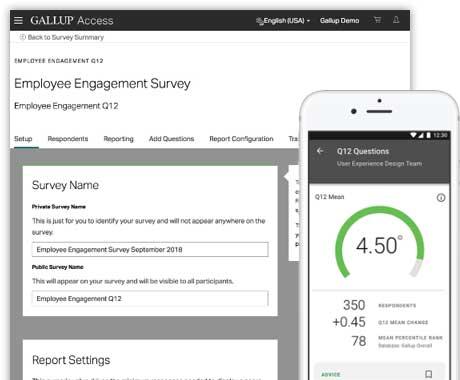Story Highlights
- Compliance is tied to a company's cultural expectations
- Managers are key in modeling and encouraging culture alignment
- Success must be measured to keep momentum toward a culture of compliance
The tech industry has been rocked by accounts of privacy violations, security hacks and harassment charges this year, just as two separate federal agencies launch investigations into tech companies' business practices.
Tech companies likely don't intend to run afoul of the law or customer confidence, which is why their legal departments write compliance standards that employees must abide by. When employees don't, the results are embarrassing and expensive.
But compliance isn't just lawfulness. In tech, compliance also relates to the company's cultural expectations -- innovation, say, or quality or customer-centricity -- and they differentiate the company.
Differentiation is crucial in tech, and culture is the mechanism for it. And because culture is associated with very important outcomes -- including talent attraction, retention, productivity, organic growth and profitability -- creating a culture of compliance is a bottom-line issue.
Building this culture, however, is also a managerial issue. Because managers translate cultural expectations to employee behaviors, the manager is the conduit of culture. Here's how leaders can help them.
Describe the Behavior You Want to See
The first step for any leader is explaining to the whole organization, in detail and repeatedly, the behaviors they want to see. Use real examples from the industry, relatable to role. With managers, incentivize compliance -- financially or via mass recognition -- while de-incentivizing noncompliance. If bad behavior is met with a shrug, nothing leaders say about their culture or values will be taken seriously.
Role modeling can be very effective, so track examples of ethics in action within the company and publicize them. If a hiring manager asks HR to strip names from resumes to prevent unconscious bias in his decision-making, let all hiring managers know. If a production manager refuses a sweetheart deal from a vendor charged with human rights violations, her peers should hear about it.
A very close look at the employee experience will indicate progress. Gallup's Q12 engagement assessment evaluates how well employees have enculturated, but our clients often request the addition of very pointed statements such as "I am treated with respect." It's a good item to measure -- Gallup scientists have found that if a U.S. worker strongly or very strongly disagrees with that statement, there's a 90% chance they have reported one or more experiences with discrimination or harassment.
The Metrics of Compliance
After those first steps, leaders must sustain momentum by measuring it. There are three aspects of compliance that leaders should look at: activity, process and outcomes.
Compliance activity: Along with celebrating behaviors that others can aspire to, gather confidential employee and customer feedback about the culture. An objective third party like Gallup can help leaders get honest answers, analyze them in context, and formulate effective values-based initiatives that align with stakeholder goals and corporate culture. Only 27% of U.S. employees strongly believe in their company's values, Gallup finds, so leaders may well find their culture doesn't resonate with their workers.
Compliance process: Determine if the functionality and efficiency of your compliance framework can be sharpened. Tech offers many new platforms to reinforce the behaviors that companies want to see. But any process can have unintended consequences, and leaders should make sure theirs doesn't accidentally encourage the wrong behavior. Teams that must compete with each other for resources may not share information, for instance, and too much emphasis on speed can undermine quality. Compliance is complex and must be analyzed holistically.
Compliance outcomes: The best way to assess improvement is by examining changes in the employee experience over time -- but CFOs can peg improvement to the dollar. For instance, FMP Global says companies that "experience noncompliance problems" lose an average of $14.82 million. That includes legal settlements -- but FMP Global says business disruption is the bigger cost. Disruption is one way to describe the effects of disengagement, and disengagement is a financial black hole: lower productivity, less profitability, higher turnover, and more safety and health cost problems. So keep in mind that the financial loss associated with cultural misalignment can be measured -- and should be.
Don't Wait Until Noncompliance Gets Out of Hand
Employee walkouts and consumer boycotts also demonstrate a disconnect from stated cultural expectations, and no leader wants culture compliance issues to get to that point. The negative attention is bad enough, but the hit to the employee experience is worse. It's hard to trust an employer that winks at its own values system -- millennials are especially averse to that.
And tech workers tend to be more loyal to their colleagues than their company as it is, according to a recent Accenture report on IT professionals in Silicon Valley, California Dreaming. Indeed, the report found over a third saying "they would be willing to help somebody in their peer network even if doing so went against their own company's interest."
Aligning workers to culture is in every company's interest. But in tech, it may be crucial. Talented workers can get a job anywhere. Customers have choices on a global scale. And lapses in values can have terrible corporate consequences -- just ask Travis Kalanick.
A culture that sticks to its moral compass, helps managers bring values to life in the day-to-day and measures its own compliance is a company with a powerful differentiator -- and far less trouble for its legal department.
Differentiate your organization through exceptional culture:
- Let Gallup assess where you are and create a strategy to reach your ideal state.
- Read about Gallup's approach to culture in our perspective paper Building a Culture That Drives Performance.
- Support your managers in becoming successful conduits for culture with It's the Manager, the bestselling collection of Gallup's decades of research-based insights on the science of management.





